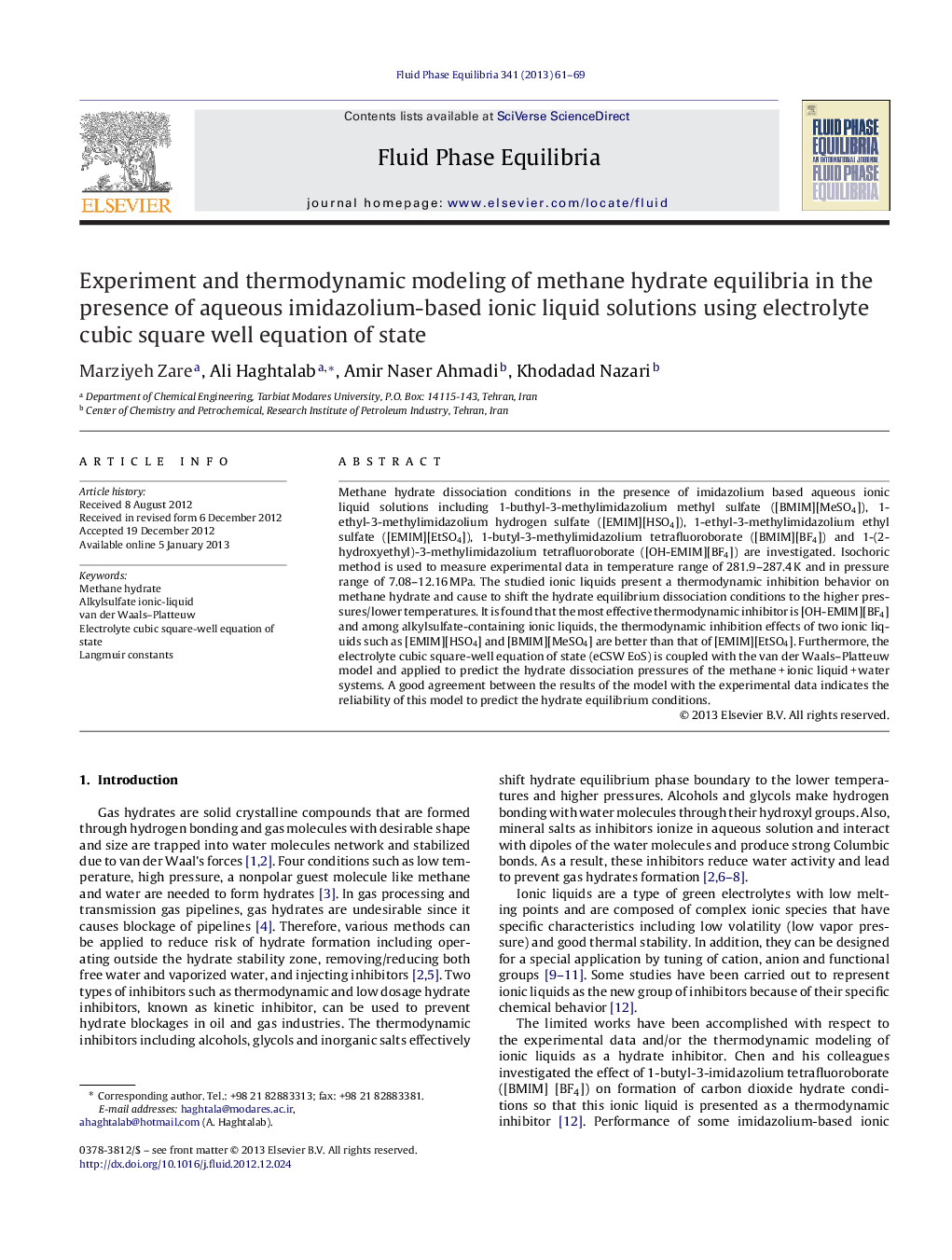| Article ID | Journal | Published Year | Pages | File Type |
|---|---|---|---|---|
| 201637 | Fluid Phase Equilibria | 2013 | 9 Pages |
Methane hydrate dissociation conditions in the presence of imidazolium based aqueous ionic liquid solutions including 1-buthyl-3-methylimidazolium methyl sulfate ([BMIM][MeSO4]), 1-ethyl-3-methylimidazolium hydrogen sulfate ([EMIM][HSO4]), 1-ethyl-3-methylimidazolium ethyl sulfate ([EMIM][EtSO4]), 1-butyl-3-methylimidazolium tetrafluoroborate ([BMIM][BF4]) and 1-(2-hydroxyethyl)-3-methylimidazolium tetrafluoroborate ([OH-EMIM][BF4]) are investigated. Isochoric method is used to measure experimental data in temperature range of 281.9–287.4 K and in pressure range of 7.08–12.16 MPa. The studied ionic liquids present a thermodynamic inhibition behavior on methane hydrate and cause to shift the hydrate equilibrium dissociation conditions to the higher pressures/lower temperatures. It is found that the most effective thermodynamic inhibitor is [OH-EMIM][BF4] and among alkylsulfate-containing ionic liquids, the thermodynamic inhibition effects of two ionic liquids such as [EMIM][HSO4] and [BMIM][MeSO4] are better than that of [EMIM][EtSO4]. Furthermore, the electrolyte cubic square-well equation of state (eCSW EoS) is coupled with the van der Waals–Platteuw model and applied to predict the hydrate dissociation pressures of the methane + ionic liquid + water systems. A good agreement between the results of the model with the experimental data indicates the reliability of this model to predict the hydrate equilibrium conditions.
► Measuring methane hydrate dissociation conditions in the presence of ionic liquids. ► Alkylsulfate based ionic liquids and tetrafluroborate anion are used. ► Interaction parameters for aqueous ionic liquid systems are obtained. ► To predict the methane hydrate equilibrium pressures eCSW EoS is applied.
